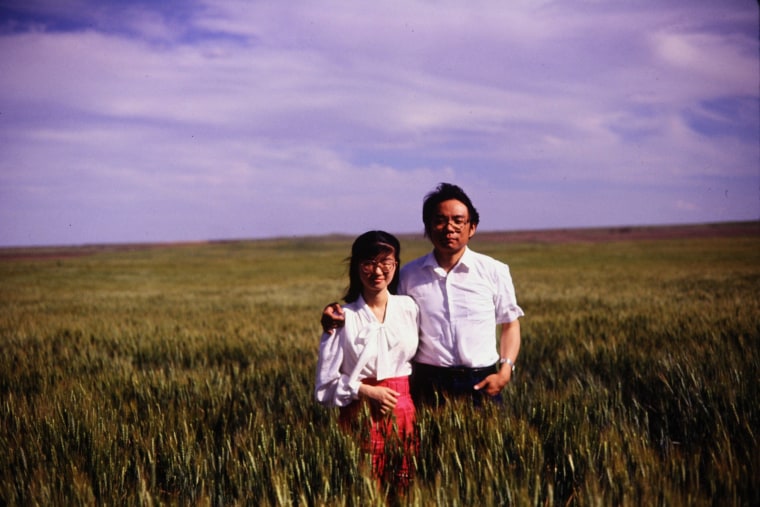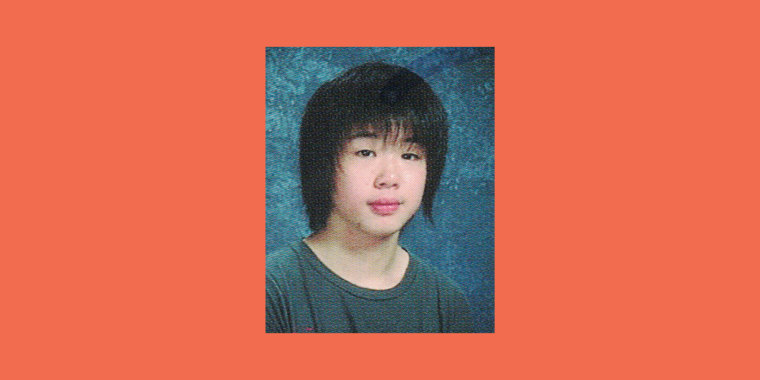Feeling anxious about adulthood, filmmaker Sean Wang was flipping through his eighth grade yearbook when he felt a wave of nostalgia and joy seeing old notes and photos from his middle school friends. That's when he came up with a simple idea: call them.
What unfolds is "H.A.G.S. (Have a Good Summer)," a documentary short directed and produced by Wang, 26, that combines imagery from the pages of his 2008 yearbook with phone calls to some of his oldest friends. The nearly nine-minute-long film — first released as an op-ed documentary for The New York Times — begins with Wang catching up with his friends, all of whom attended middle school in Fremont, a city in the San Francisco Bay area with a large Asian American population.
Talks with two friends, Fahad Manzur and Way Chen, delve into their feelings toward adulthood, the uncertainty of their futures, and being first-generation children of Asian American immigrants.
"That wasn't the intention," Wang, a first-generation Taiwanese American, told NBC Asian America about the process of making the film. "But I think because we share these overlapping intersections of identity, in all of our conversations we were able to talk about adulthood and growing up, and the sort of struggles of comparing yourself to your parents, and the different lives we live."
The short came about when Wang, also a Sundance Ignite fellow, was 25 and doing research for a feature film set in 2008. To get an idea of the time, he went through his yearbook when he had the rush of memories. There was joy seeing his friends but also remembering the distinct anxieties that teenagers feel. He also felt a sense of time passing by incredibly fast.
Amplified worries of being in his mid-twenties and seeing those photos made him curious to see if his friends felt the same way about growing up and navigating adulthood. Those calls led to some conversations ending in "an honest, vulnerable and heartfelt place."
In the film, Wang catches up with his two friends in one-on-one conversations. In one, Manzur and Wang reminisce about being called the "hottest Indian guy" or the "coolest Asian." Wang says that while these backhand compliments were "racist in nature," they were a reflection of the culture at the time. In other calls, they look back on school bus adventures, from snorting sugar to peeing in soda bottles — scenes they described were like a public zoo.
Prompted by a question about his feelings on adulthood, Chen confesses how it's not been what he's expected and that "there are some aspects of my life where I feel like I have not grown up, and everyone else has." Manzur also compares himself to his father, who had him when he was 30 — a responsibility Manzur says he’s not sure he’d be ready for.
"The struggles that we go through are completely different from the troubles they go through," Manzur says in the film.

These conversations also prompted Wang to reflect on himself and his parents, he said in an interview. He is now the same age as his parents were when they came from Taiwan to the United States to attend school. The different pursuits of the filmmaker and his immigrant parents, Wang says, reflect an American dream that is constantly changing with each generation.
Wang said that one commonality between him and his friends who are the children of immigrants is the desire to chase something that is rooted in their passion — a privilege he's thankful for but thoughts his parents didn't have because they were concerned about paying the bills.
"I'm allowed to pursue these dreams and goals of being a filmmaker and that's something my parents could never even think about doing because they had to think -- 'How are we going to survive in America?' 'What are the things we have to do to set us up for a future that can support our children?" he said.
When asked about his short documentary giving a lens into the Asian American experience, which is rarely represented in media, Wang said that was never his intention.
"By telling something that feels very personal and familiar to me, sharing that perspective is ultimately just sharing a perspective that hasn't been seen," he said.
Follow NBC Asian America on Facebook, Twitter and Instagram.
